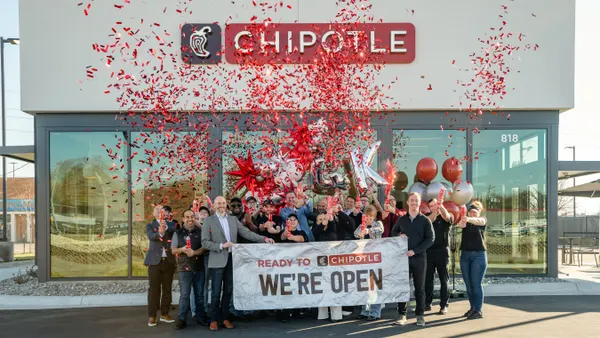Dive Brief:
- Subway Chief Brand and Innovation Officer Len Van Popering has left the company after his position was eliminated as part of a reorganization effort. Chief Legal Officer Bethany Appleby is also out, but was replaced by Ilene Kolbert, according to Restaurant Business.
- The latest departures bring the total number of executives who have left the company since December to five. With 23,692 units, the company is now at its lowest unit count since 2009, and the reorganization is meant to stop further unit declines.
- Additionally, the new structure is meant to bring talent closer to international markets and simplify international, which also has been impacted by unit reduction. Stores abroad declined 1.6% in 2019 and have dropped by 3.3% since 2019 when the international network peaked 18,004.
Dive Insight:
After downsizing its unit count significantly throughout the past four years from its 2015 peak of 27,103 locations, Subway now seems to be taking the same downsizing approach at its Milford,Connecticut-based headquarters, especially under new CEO John Chidsey, who was hired two months ago. In mid-December, Subway's longtime Chief Development Officer Don Fertman and CFO Dave Worroll announced their retirement. Both positions will be replaced, but Ian Martin, SVP for International, also left due to reorganization.
The company's C-suite has experienced quite a bit of turnover within the last 18-plus months. In October, Subway named Carrie Walsh as its chief marketing officer, after more than a year without a permanent marketing leader, along with three other executives, including a new VP of operations for North America and a new VP of global development. Meanwhile, former CEO Suzanne Greco retired in May 2018 and up until Chidsey's hire, the company was operating under interim CEO Trevor Haynes.
It's hard to find solid strategic footing amid such dizzying changes at the top, and Subway no doubt suffered accordingly. But Subway's issues began mounting well before the leadership carousel starting spinning. The chain's relationship with franchisees, for example, is on rocky ground. In November, Subway operators told the New York Post that the chain is now enforcing 20-year franchise agreements for the first time in an attempt to stem store closures. In May, operators claimed that Subway was targeting stores for minor infractions to shutter stores and restructure its system. Franchisees have also pushed back against the chain's $4.99 footlong deal, a promotion that may have attributed to another executive departure when marketer Karlin Linhardt left after just eight months.
These latest shakeups could very well create a sense of unease among already-restless franchisees. It'll be critical for Chidsey to rectify that relationship and soon, as a healthy franchisor doesn't exist without a supportive franchise system.
This most recent overhaul could also have some implications on Subway's recent menu initiatives. Popering spearheaded efforts such as the Beyond Meatball Sub and its Halo Top milkshakes, modernizing the chain's menu and creating a buzz in the process. In March 2018, Subway announced an $80 million refresh that includes store remodels, digital transformations and a bigger culinary and innovation team. The elimination of Popering's position could bring some of these initiatives to a halt.










